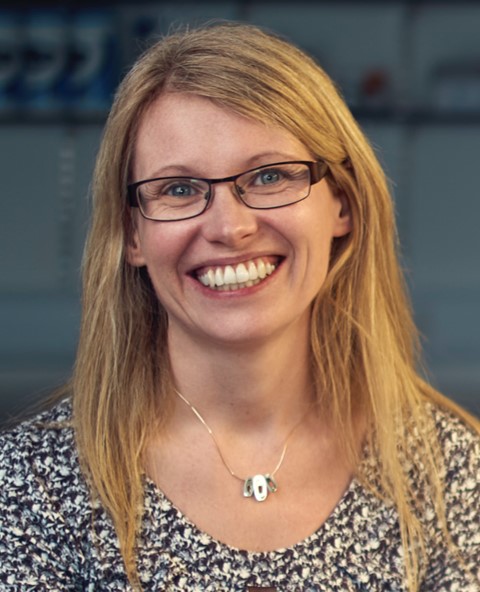
|
Prof Aline F.
Miller
is a Professor of Biomolecular Engineering in the School of Chemical
Engineering and Analytical Science having joined the University of
Manchester in 2002. Prior to this she held a New Hall College Junior
Research Fellowship at the Cavendish Laboratory, Cambridge University.
She is a chemist by
training (B.Sc. Glasgow University and Ph.D. Durham University) and
during this time gained several awards,
including the Sir George Beilby Medal and the Hackman Research
Fellowship. She has also gained several awards while in Manchester
including the Exxon Mobil Teaching Fellowship in 2004, The
Royal Society of Chemistry MacroGroup UK Young Researchers
Medal in 2008 and the Philip Leverhulme Prize for Engineering in 2014.
Aline was elected
fellow of the Royal Society of Chemistry (RSC) in 2013 and fellow of
the Institute of Physics (IoP) in 2016. In 2019 she became CEO of
Manchester BIOGEL
having taken a leave of absence from the University. In 2021 she
rejoined the University of Manchester and became Associate Dean for
Business Engagement & Innovation in Faculty of Science and
Engineering.
|
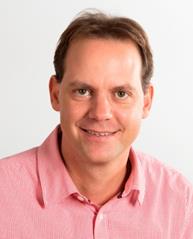
|
Prof Alberto
Saiani was awarded an European PhD in 1997 by the University
Louis
Pasteur, (Strasbourg, France). Following his PhD, he held a number of
post-doctoral positions in Japan, at Osaka University for which he was
awarded a Japanese Society for Promotion of Science postdoctoral
fellowship (JSPS), the UK, at imperial College London and Belgium, at
Huntsman Polyurethanes.
In 2000 he was appointed lecturer at the
University Blaise Pascal (Clermont-Ferrand, France) before joining in
2002 the Department of Materials at the University of Manchester. His
research work spans a wide area
of experimental polymer and biopolymer science and focuses on
understanding and engineering materials across length scales from
molecular design all the way to bulk properties and includes
fundamental, industrial and translational research. In 2013 he was
awarded a 5-year EPSRC Research
Fellowship to pursue his work on peptide hydrogels which led to the
co-founding in 2014 of Manchester BIOGEL. In 2016 he was elected Fellow
of the Royal Society of Chemistry (RSC). From 2018 to 2022 he first
treasurer and then chair of the Royal Society of Chemistry Biomaterials
Chemistry Insterest Group. In 2022 he joined the Division of Pharmacy
and Optometry at The University of Manchester in the Faculty of
Biology, Medicine and Health to pursue his translational work.
|
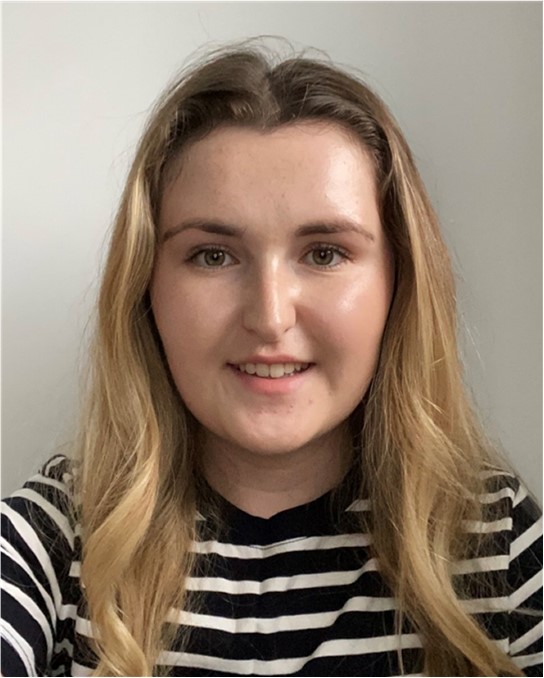
|
Lauren
Churchill graduated
from Keele University in 2022 with a Master in Science in Biochemistry.
In 2020, she worked at the Alderley Park Lighthouse lab, part of the
governmentís Covid-19 PCR testing programme in response to the
pandemic. In July 2022 she joined the group to pursue a PhD focused on
the application of peptide hydrogels for ocular drug delivery, in
collaboration with NanOptima. |
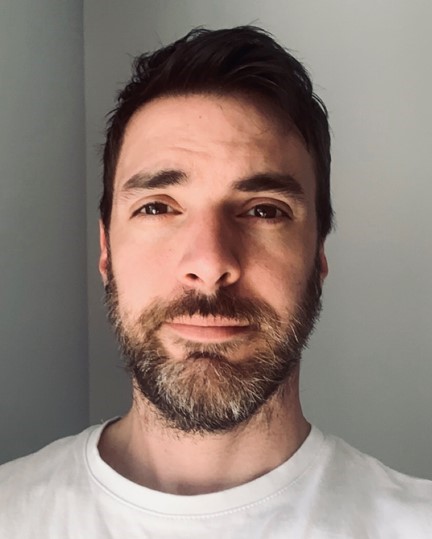
|
Stefano Pretto
graduated from University College Cork, Ireland, in 2020 with a BSc in
Biochemistry. In the same year, he relocated to UK to work as a Cell
and Gene Therapy Scientist and focus on the manufacturing of Covid-19
vaccine. In early 2022, he obtained a new position as a Process
Development Associate and worked on new plasmid platforms for multi
serotype AVVs used on pre-clinical and clinical studies. In September
2022, he joined our group to pursue a PhD in the optimization of
hydrogel for the manufacture of 3D organoids model for drug discovery
in collaboration with Manchester BIOGEL and the National Physical
Laboratory. |
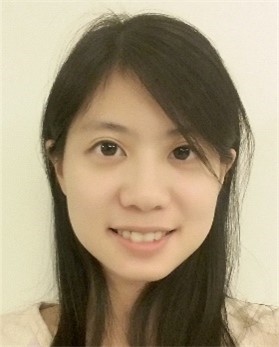
|
Chao-Yu Yang
graduated from the National Taiwan University with a bachelor's degree
in Agricultural Chemistry (in 2016) and a master's degree in
Bio-Industrial Mechatronics Engineering (in 2019). She also
studied intermolecular interactions and integrated embedded
systems. During 2019-2022, she was a research assistant working on deep
learning at the Institute of Information Science, Academia Sinica in
Taiwan. In September 2022, she joined our group to pursue a Ph.D. on
modeling the self-assembly pathway of amphipathic peptides. |
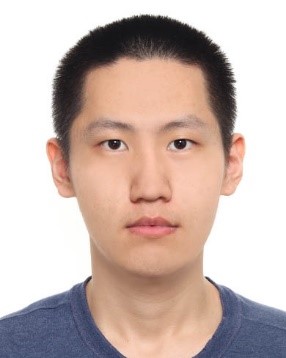
|
Junzheng Wen
graduated from Nanyang Technological University, Singapore, in 2022
with a BEng in Materials Engineering. In 2021, he worked at the
Singapore Agency for Science, Technology and Research (A*STAR) as an
intern on protein quality evaluation for meat alternatives. In
September 2022, he joined our group to pursue a PhD focused on the
development of hydrogel scaffold for in-vitro cardiac models, in
collaboration with Prof. Bernard Keavney group from the Division of
Cardiovascular Sciences at the University of Manchester. |
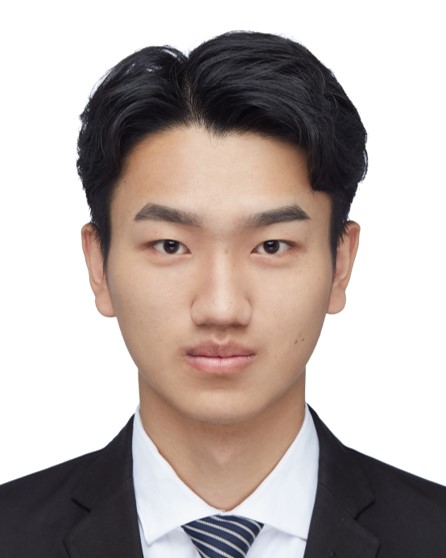
|
Qixun Chu
graduated
from the University of Science and Technology in Beijing with a degree
in Materials Science and Engineering. He then did a MSc in the same
field at the University of Manchester. Following his master He joined
our group in January 2023 to pursue a PhD on developing novel
peptide-based bioinks for 3D bioprinting. |
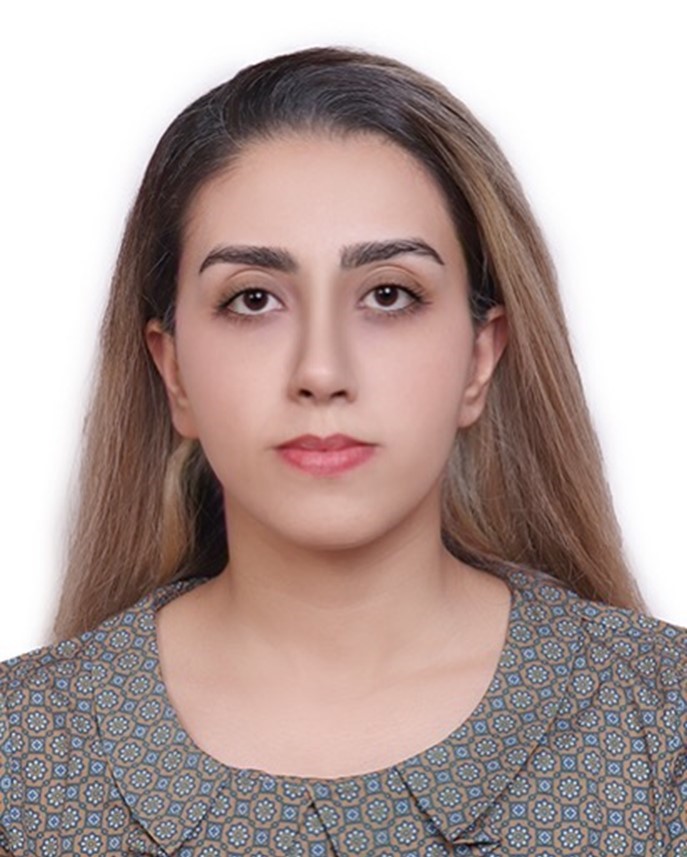
|
Nastaran Zoghi
received her bachelorís degree in Biomedical Engineering, Biomaterials,
from Amirkabir University of Technology, Iran in 2017. Continuing her
education, she pursued a MSc in the same field at Tarbiat Modares
University, Iran, which she completed in 2020. In January 2023,
she embarked on a PhD journey in our group focusing on Design and
synthesis of novel biodegradable peptide-based elastomers for
biomedical applications in collaboration with Dr. Lee Fielding at the
Department of Materials.
|

|
Muhan Ayi graduated
from Shanghai Polytechnic University in 2022 with a BSc degree in
Chemical Materials and studied for an MSc degree in Materials Science
and Engineering at the University of Birmingham, UK, in 2023. During
2018-2022, she studied the stability and related work on PVA hydrogels
and carried out research on pulsed bias active screen plasma
nitridation of austenitic stainless steels for her MSc project. In
April 2024, she joined our group for her PhD, studying peptides and PVA
self-healing hydrogels for drug delivery. |
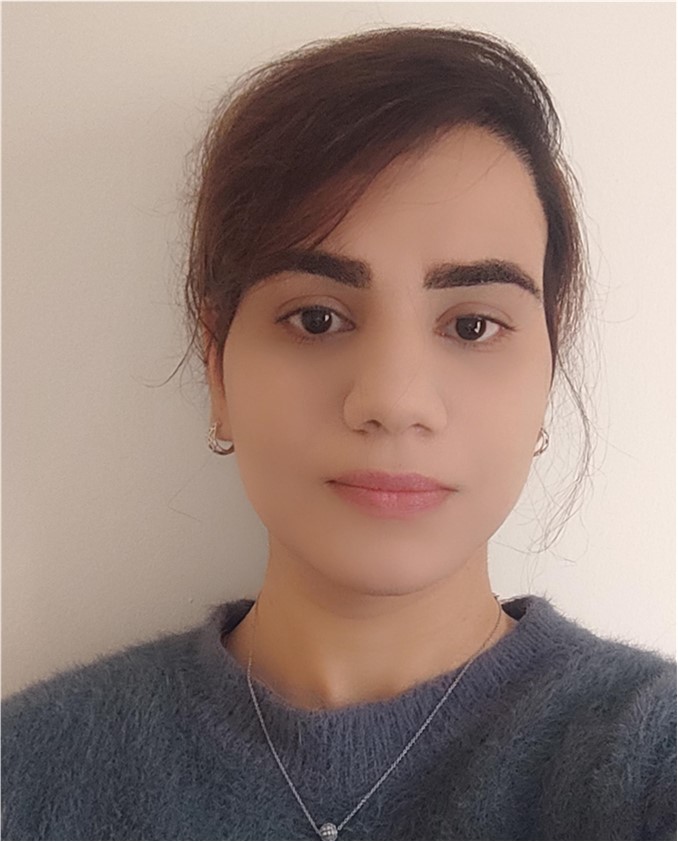
|
Sara Hosseinzadeh graduated
from Tarbiat Modares University in 2018 with a master's degree in
medical biochemistry. She subsequently worked in the Nanobiotechnology
department at the Pasteur Institute of Iran and simultaneously
collaborated as a Quality Control expert in the Recombinant Protein
section of Renap Iran. In April 2024, she joined our group to
pursue a PhD on design of polysaccharide-peptide conjugated
hydrogels for biomedical application. |

|
Nazar Mohammad
Nasser graduated
from University of Manchester with a Master's of Engineering (Materials
Science) in 2023, during which he worked on the synthesis and
characterization of polymer-based broad-spectrum antiviral compounds.
In August 2024 he joined our group to work on developing peptide
hydrogel-based local delivery systems for treating Glioblastoma in
collaborartion with Dr C.
Tapeinos group in the division of pharmacy and
optometry. |
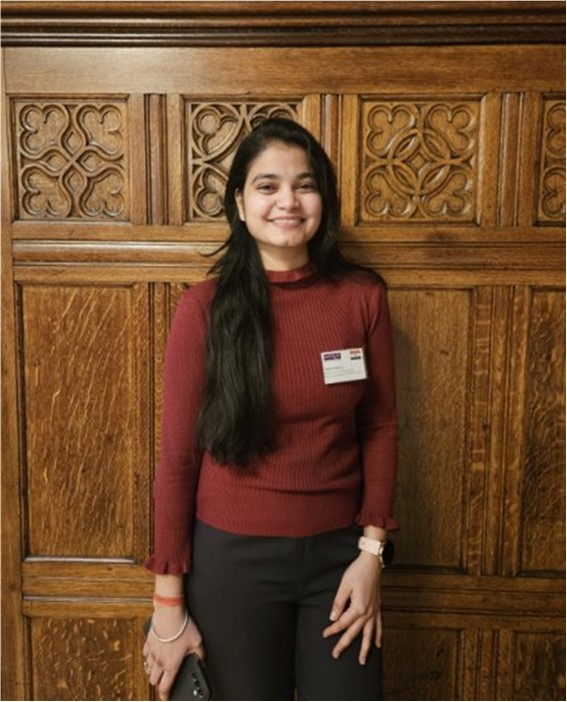
|
Nainsi Chauhan graduated
in 2024 from The University of Manchester with an MSc in Biomaterials
having been awarded a British Council Women in STEM Scholarships. In
October 2024, after
been awarded a University of Manchester Dean's Doctorate Scholarship, she joined our group
to pursue a PhD focusing on designing novel biodegradable
hydrogel scaffolds for cultured meat. |
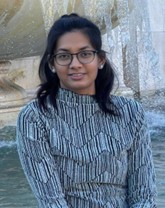
|
Jeyapriya Thimukonda Jegadeesan completed
her MSc in Biotechnology at the Indian Institute of Technology Bombay
and subsequently worked as a Junior Research Fellow at the Indian
Institute of Science, Bangalore. In 2024 she joined our University to
undertake a BBSRC DTP-funded PhD in our group. Her current research
focuses on multi-cue-driven design strategies for nerve regeneration in
collaboration with Dr. Christos Tapeinos from the Division of Pharmacy
and Optometry. |
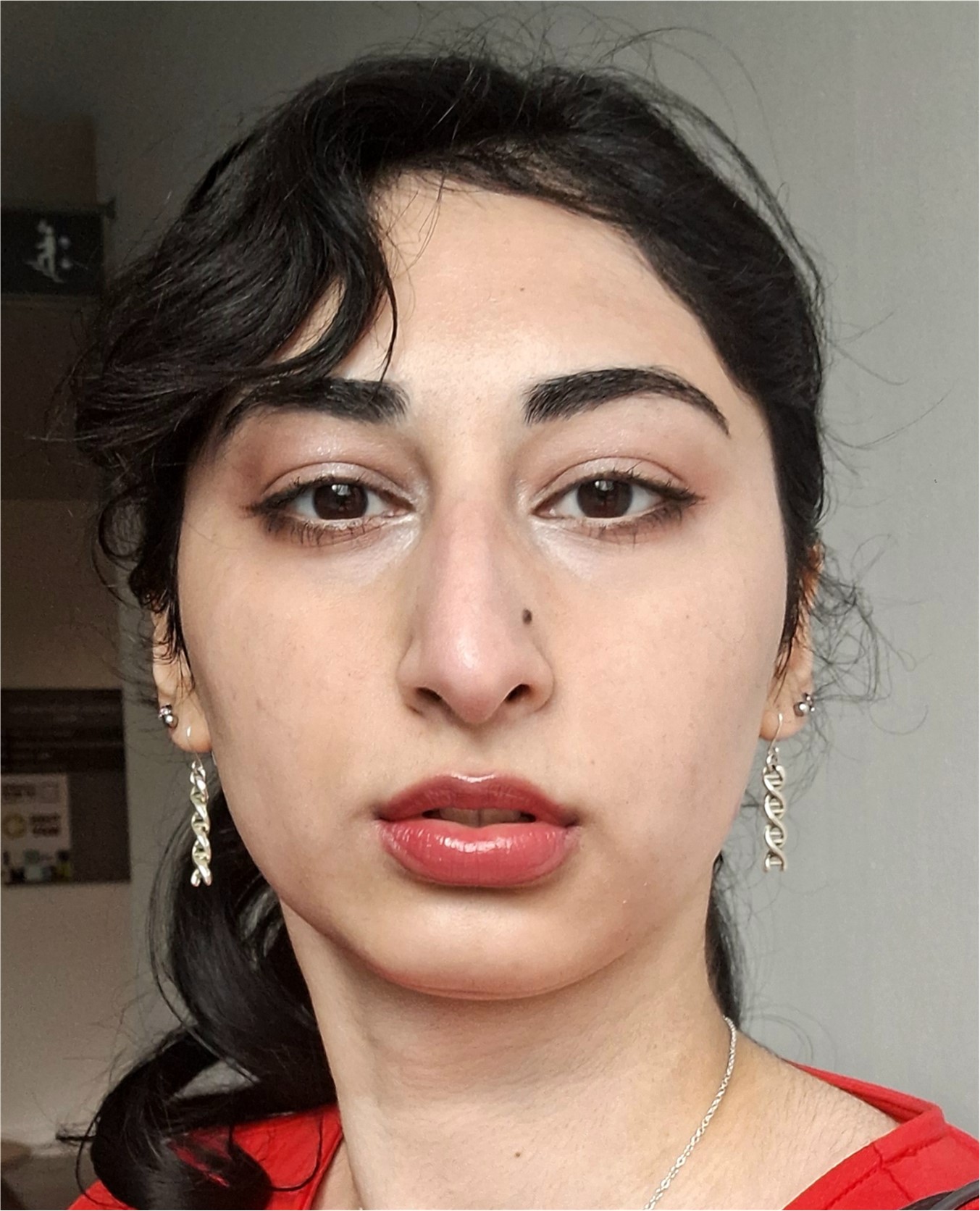
|
Saarah Mazhar graduated
in 2023 from Manchester Metropolitan University with a BSc in
Biomedical science. She completed an MSc in Tissue Engineering for
Regenerative Medicine at the University of Manchester in 2024. She
joined the group in October 2024 to pursue a PhD focusing on developing
a new drug delivery method to target solid tumours in collaboration
with Dr Katherine Finegan in the Department of Cancer Biology. |
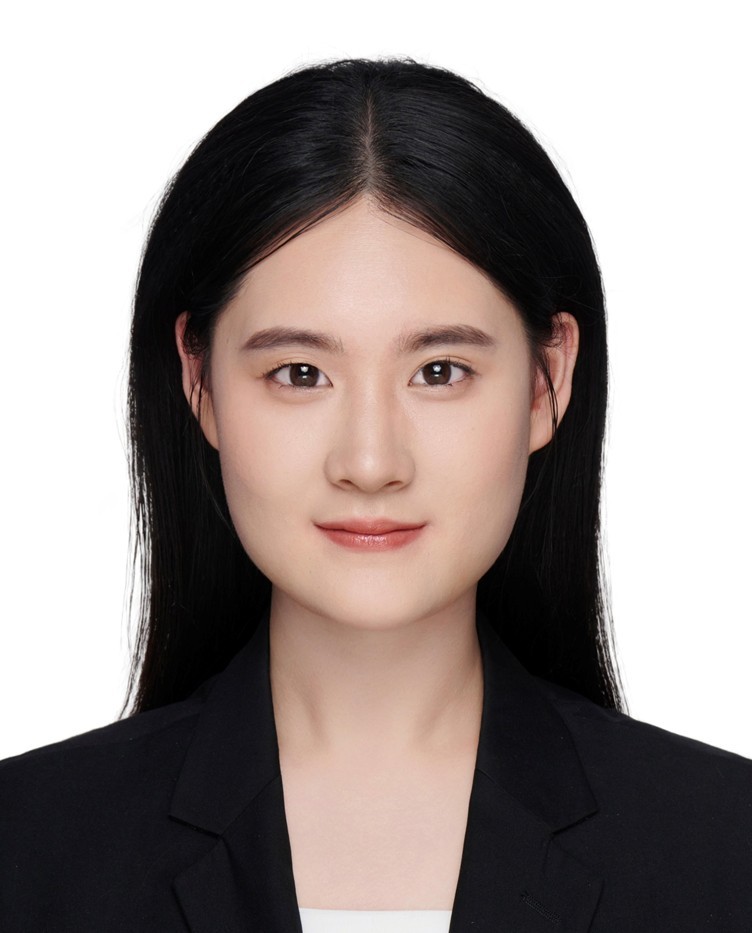
|
Xinyi Xu
graduated from Southeast University, China, with a Bachelorís degree
(in 2022) and a Masterís degree (in 2025) in Biomedical Engineering.
Her research projects focused on studying the antibacterial properties
of nanomaterials and on the application of PVA hydrogel microneedles.
In September 2025, she joined our group to pursue a PhD exploring the
mechanism of antibacterial properties of self-assembly peptides-based
hydrogels in collaboration with Prof. Andrew Mcbain group in the
Division of Pharmacy. |
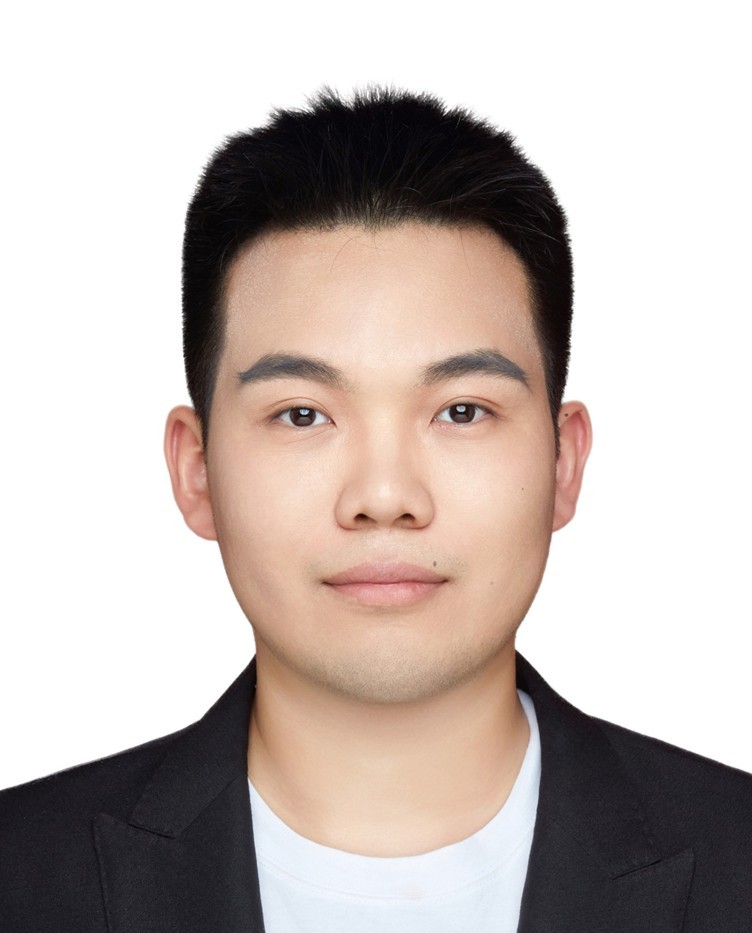
|
Zixi Cai
graduated in 2023 from the Northwestern Polytechnical University in
China with a degree in Polymer Materials Science and Engineering. He
then did a MSc in the same field at the University of Manchester,
focusing on stimuli-responsive hydrogels. Following his master, he
joined our group in September 2025 to pursue a PhD on developing
elastomeric peptides in collaboration with Dr Tom McDonald from the
Department of Materials.
|
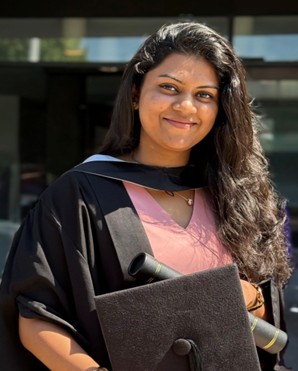
|
Komal Ranpise
completed her MSc in Nanotechnology and Regenerative Medicine at
University College London (UCL) before joining our group at the
University of Manchester in 2025 as a Bicentennial PhD Award recipient.
Her PhD focuses on developing a self-assembling peptide-based
conductive hydrogel for biomedical applications in collaboration with
Dr Akhil Jain from the Division of Pharmacy and Optometry. |
